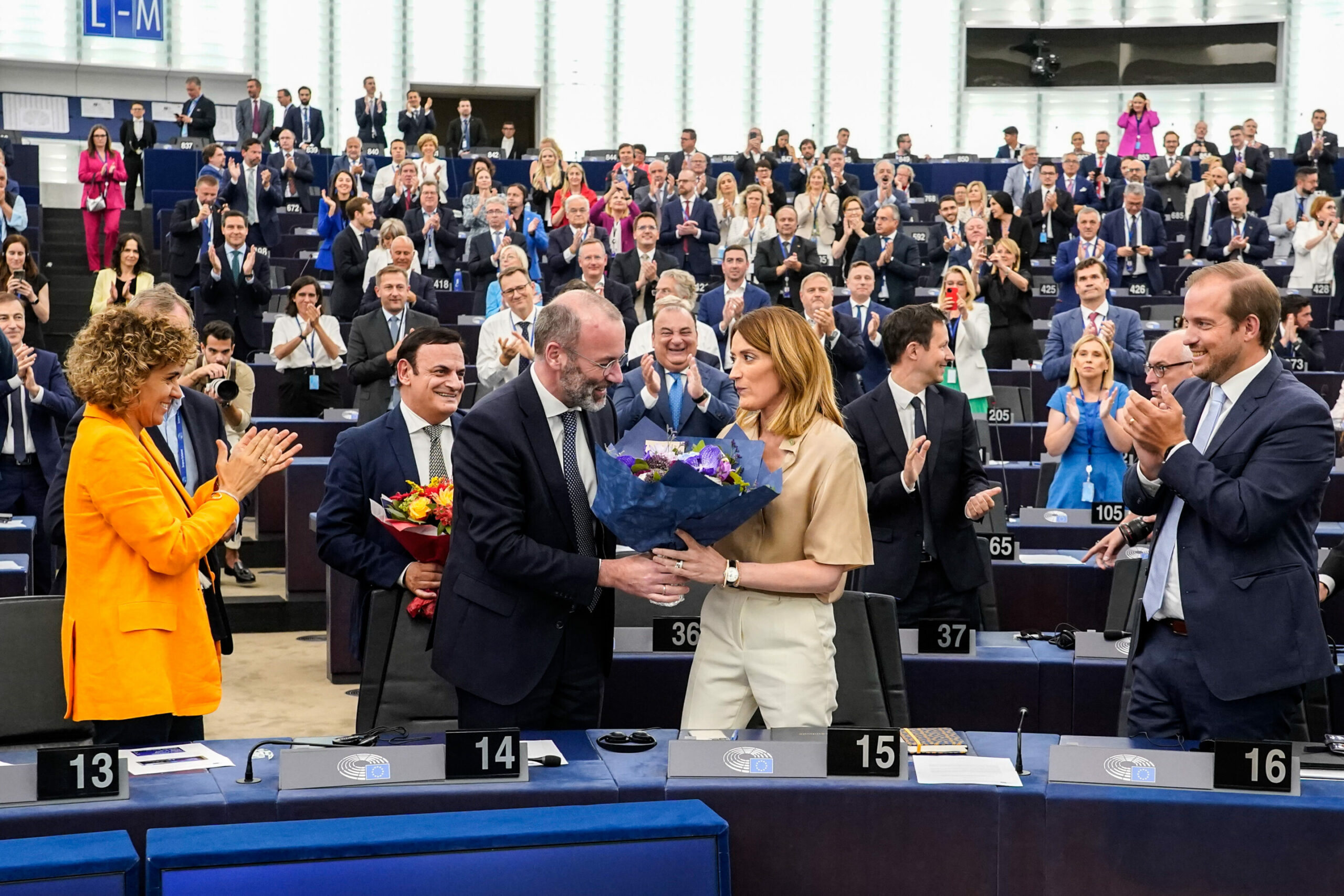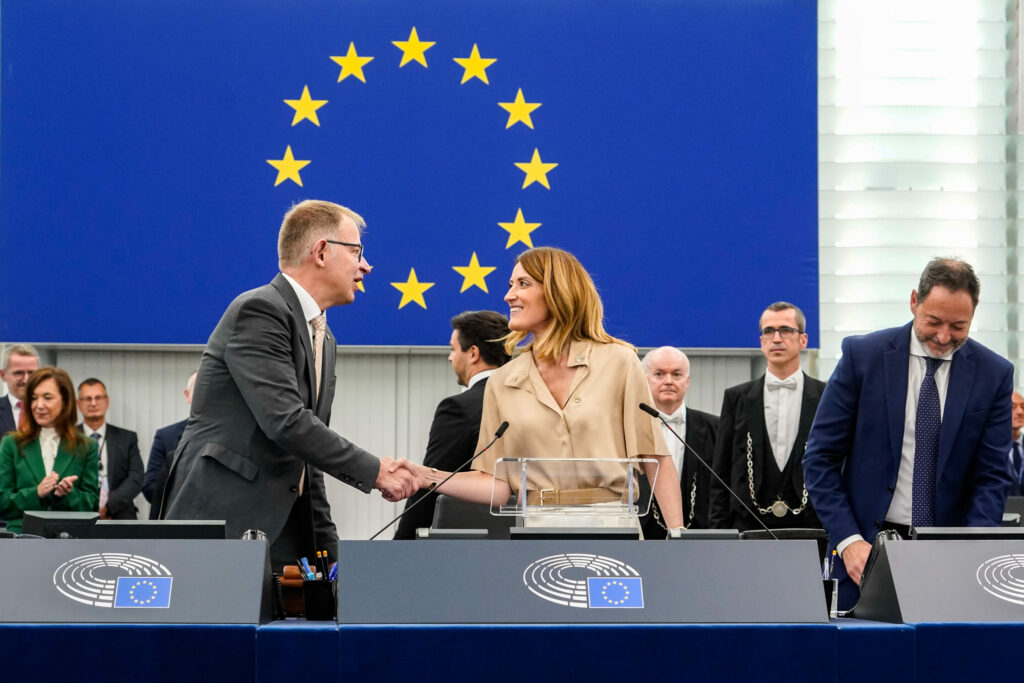The European Parliament's incumbent President, Roberta Metsola, has been overwhelmingly endorsed for reappointment for another two-and-a-half years.
A pro-European conservative from Malta (EPP), Metsola secured 562 out of 623 valid votes. Her only competitor, former Spanish minister Irene Montero (The Left), collected 61 votes.
Metsola also inaugurated the tenth legislative session of the European Parliament on Tuesday in Strasbourg, setting the institution on course for its half-century of direct universal suffrages in 2029.
It had been widely anticipated that Metsola would secure a new mandate for two and a half years. A member of the conservative European People's Party (EPP), which remains the largest political group in Strasbourg with 188 seats, she also had broad support from other pro-European factions, including the Greens/EFA. A large segment of the conservative and nationalist ECR group also voted in favour of her re-election.
Her candidacy for a new two-and-a-half-year term had already been supported by three political groups expected to back the next European Commission: EPP, socialists and social democrats (S&D), and liberals and centrists (Renew Europe). She faced only one opponent, former Spanish minister Irene Montero, a last-minute candidate from Podemos and The Left group.
The election took place by a secret ballot, with the absolute majority of valid votes (50% plus one vote, once white and null votes are deducted).

EPP leader Manfred Weber (Germnay) congratulations the new European Parliament President Roberta Metsola Credit: EP Photo
The new president will now have to elect the parliamentary bureau, which manages the institution’s operations, comprising 14 vice-presidents and five quaestors. Among the vice-presidential candidates is the former Belgian Prime Minister Sophie Wilmès, put forward by her Renew Europe group.
One of the core voting initiatives of the bureau focuses on a cordon sanitaire against the far-right, which is now split across three groups. These include Orbán's Patriots for Europe, eurosceptic ECR, as well as the smallest group – ‘Europe of Sovereign Nations’.
Only the latter two are under consideration for exclusion from key positions in the Parliament. Thursday's vote for the Commission President is expected to be close. The ‘von der Leyen majority’ of the previous legislature having lost some ground following a strong backlash from Renew Europe.
Hence, von der Leyen may need to strike a balance between meeting the demands of everyone, from the Green parties to the ECR. Her Thursday morning speech will be keenly watched by many MEPs to ascertain if they can make up for any expected minority defections within the EPP, the S&D, or Renew Europe.
As she negotiates issues such as controversial environmental pacts, industrial competitiveness challenges, defence, law and immigration, the question remains whether her 40-seat advantage will be sufficient for her gamble on a tripartite coalition alone. If it fails, the European Council will have to offer the Parliament a new candidate within a month.

